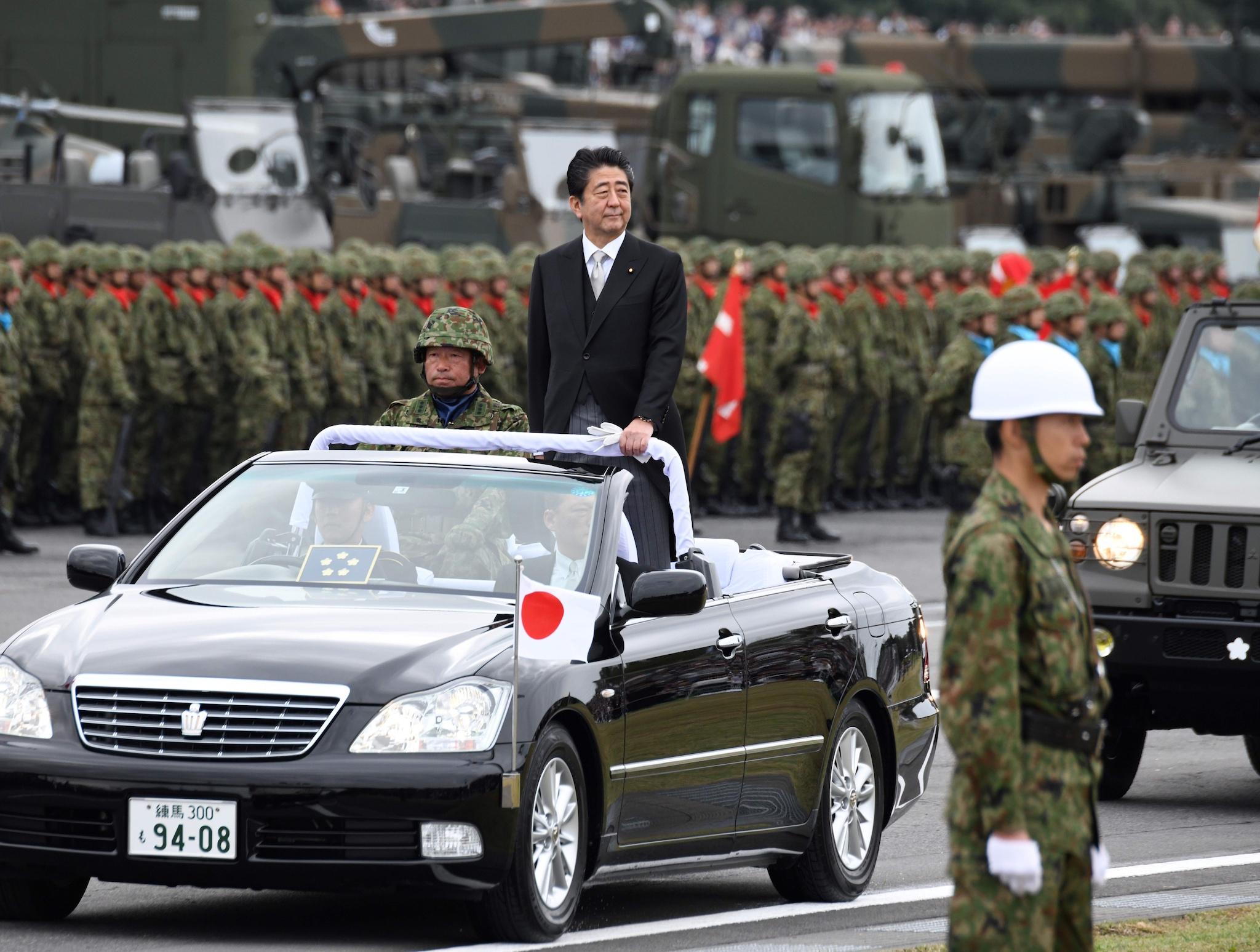Japan to acquire aircraft carrier and cruise missiles as it moves away from ‘image of pacifism’
Officials and analysts both framed the changes as necessary in context of rising threats in east Asia

Japan has approved plans to significantly increase its defence spending, which has been seen as a shift away from its constitutionally-enshrined principles of pacifism.
According to new spending guidelines that were agreed by Shinzo Abe’s cabinet on Tuesday, the country will acquire its first aircraft carrier as well as long range cruise missiles, giving it the ability to carry out offensive strikes against enemy bases for the first time since the Second World War.
Over the next decade, Japan will also acquire 147 US-made F-35 stealth fighters, as well as two units of the American ground-to-air defence system Aegis Ashore.
The spending amounts to a record five-year budget of 27 trillion yen (£190bn) beginning in 2019, up more than £14bn from a previous five-year plan.
Officials and analysts both framed the changes as necessary in the context of rising threats in east Asia, from North Korea’s nuclear arsenal to China’s increasingly bold manoeuvres in the South China Sea.
But it also comes in the context of Mr Abe’s efforts to revise Article 9 of the Japanese constitution which, drafted by the US in 1947, denounces war and stipulates that “land, sea and air forces, as well as other war potential, will never be maintained”.
Mr Abe has campaigned for an amendment which formally recognises the existence of the Japanese military, known as the self-defence forces (SDF), but polling suggests the public does not support even limited changes to the country’s commitment to peace.
The spending represents “a new development moving away from the image of pacifism”, said Kongdan Oh, an expert at the Institute for Defence Analyses who led a taskforce on rewriting US-Japan military guidelines in 2015.
But she told The Independent the change was an “unavoidable evolution” of Japan’s stance, given the threats it faces. “If an adversary is building capability to hit Japan at any given time with WMDs, should Japan’s leadership tolerate this development and hold up its hands saying ‘well, not much we can do?’”
The plans did not provide a cost for adding a first aircraft carrier to Japan’s navy, but did explain that it will be done by refitting an existing helicopter carrier with the capacity to carry 10 stealth fighters.
A carrier would be particularly useful in the western Pacific, where Japan tries to defend remote islands, including those disputed with China.
China has criticised the spending plans. In Beijing, a spokesperson for the Chinese foreign ministry told reporters: “Due to historical reasons, neighbouring countries in Asia and the international community have long been highly concerned about Japan’s moves in military and security fields.”
Dr Hoo Chiew Ping, a senior lecturer in strategic studies at the University of Malaysia, said it was “predictable” that China would react negatively to military expansion in Japan, “even though the estimated budget is still not more than 0.9 per cent of Japan’s GDP”.
She described the purchase of 105 conventional F-35s and 42 F-35Bs as “definitely the highlight” of the budget – each F-35 costs about 10 billion yen (£70bn).
But she suggested such an increase in capacity might present a problem with recruitment from among Japan’s ageing workforce. She said: “There’s no clear indication that the expanded SDF would have adequate service members, [given the] dwindling numbers of recruit targets over the years.”
Analysts are agreed that the Japanese public is generally averse to greater militarism. Polling earlier this year suggested that less than 40 per cent of Japanese citizens think the constitution should be amended under Mr Abe.
Nonetheless, particularly with talks over North Korea’s denuclearisation stalling, “there is growing understanding in Japan of the regional military challenges”, said Dr Alessio Patalano, an expert on Japanese military policy at King’s College London.
“That is why these changes are presented as the most conservative steps needed to maintain a credible defence posture,” he said.
Join our commenting forum
Join thought-provoking conversations, follow other Independent readers and see their replies
Comments